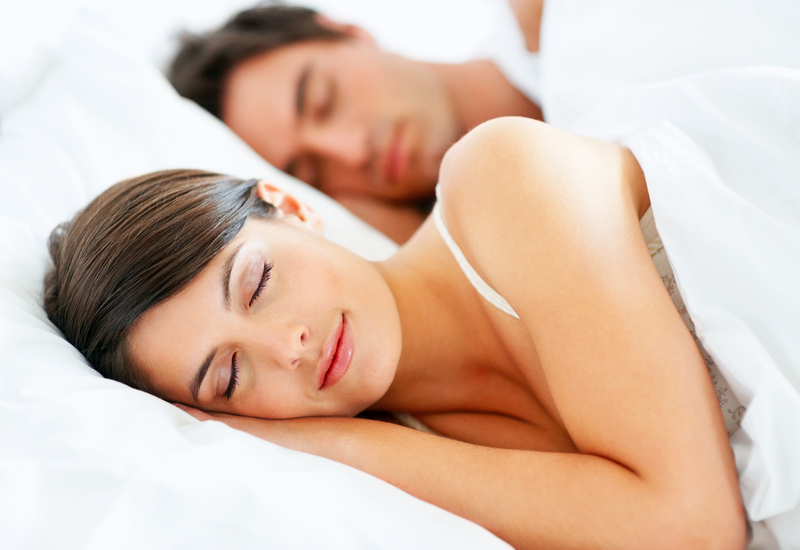More Than a Third of U.S. Adults Not Getting Enough Sleep

Get the world’s most fascinating discoveries delivered straight to your inbox.
You are now subscribed
Your newsletter sign-up was successful
Want to add more newsletters?

Delivered Daily
Daily Newsletter
Sign up for the latest discoveries, groundbreaking research and fascinating breakthroughs that impact you and the wider world direct to your inbox.

Once a week
Life's Little Mysteries
Feed your curiosity with an exclusive mystery every week, solved with science and delivered direct to your inbox before it's seen anywhere else.

Once a week
How It Works
Sign up to our free science & technology newsletter for your weekly fix of fascinating articles, quick quizzes, amazing images, and more

Delivered daily
Space.com Newsletter
Breaking space news, the latest updates on rocket launches, skywatching events and more!

Once a month
Watch This Space
Sign up to our monthly entertainment newsletter to keep up with all our coverage of the latest sci-fi and space movies, tv shows, games and books.

Once a week
Night Sky This Week
Discover this week's must-see night sky events, moon phases, and stunning astrophotos. Sign up for our skywatching newsletter and explore the universe with us!
Join the club
Get full access to premium articles, exclusive features and a growing list of member rewards.
Two reports released by the Centers for Disease Control and Prevention today (March 3) reveal the sleep habits of adults in the United States, including their increasing tendency to get fewer than seven hours a night, hurting their ability to concentrate and raising the risk of driving.
Residents of Hawaii have particular trouble sleeping well, according to the responses to one survey, and CDC said more research on the matter is needed.
In one report, based on a survey of nearly 75,000 people in 2009, CDC researchers examined four unhealthy sleep behaviors: inadequate sleep, snoring, nodding off during the day and nodding off while driving.
Thirty-five percent reported getting fewer than seven hours of sleep on an average night, 48 percent reported snoring, 38 percent reported unintentionally falling asleep during the day sometime in the previous month, and nearly 5 percent said they'd nodded off while driving in the previous month.
The number of U.S. adults reporting that they get fewer than seven hours of sleep rose from 1985 to 2004, and that increase could be attributed to trends such as the increased use of technology and more people working night shifts, the CDC said.
Among people ages 25 to 54, nearly 40 percent reported getting fewer than seven hours of sleep. People over 65 were the least likely to say they got fewer than seven hours of sleep — about 25 percent of them reported this.
About 46 percent of those currently unable to find work said they got fewer than seven hours of sleep, compared with 37 percent of employed people. And, of the 12 states in which adults were surveyed, Minnesota had the lowest rate (27 percent) of residents who got fewer than seven hours of sleep, while 45 percent of Hawaiians said the same.
Get the world’s most fascinating discoveries delivered straight to your inbox.
In fact, Hawaiians had the highest prevalence of all of the unhealthy sleep behaviors.
The National Sleep Foundation suggests seven to nine hours of sleep per night for adults. Both shorter and longer durations can be worse for your health, the CDC said.
More than 56 percent of men reported snoring, while 40 percent of women did.
People ages 18 to 24 and those over 65 were the most likely to unintentionally fall asleep during the day — about 44 percent of these groups reported nodding off.
And people ages 25 to 34 were the most likely to say they'd fallen asleep while driving sometime during the last month. Seven percent of them did, compared with just 2 percent of seniors, who were least likely to report this behavior. Nearly 6 percent of men said they'd done this, while 3½ percent of women had.
Drowsy driving is one of the most lethal consequences of inadequate sleep, the CDC noted. According to the Department of Transportation, it's responsible for an estimated 1,550 deaths and 40,000 injuries each year in the United States.
Sleep difficulties are associated with mental disorders, limited daily functioning, injury and mortality rates, the CDC said.
To promote healthy sleep behaviors, increased public health awareness of sleep quality, behaviors and disorders is needed, as well as training in sleep medicine for healthcare professionals.
The second report examined the effects of getting too little sleep on daily activities. That report was based on data from two surveys, conducted between 2005 and 2008, including almost 11,000 respondents.
Among the six daily activities included in the survey, the ability to concentrate was the most commonly reported difficulty associated with too little sleep. About 29 percent of adults who got fewer than 7 hours of sleep a night said they had a hard time concentrating, while just 19 percent of those getting 7 to 9 hours of sleep a night reported this.
Those who reported sleeping less than seven hours also had greater difficulties remembering things, participating in hobbies, driving or taking public transportation, taking care of financial affairs and working than did those who reported getting 7-9 hours a night.
And overall, women were more likely than men to report sleep-related difficulties in their daily activities, the report said.
There are several limitations in interpreting the reports' results, the CDC said. For example, the first included only households with telephone landlines in 12 states, and both studies were based on self-reported data.
Follow MyHealthNewsDaily on Twitter @MyHealth_MHND.
This story was provided by MyHealthNewsDaily, a sister site to LiveScience.
 Live Science Plus
Live Science Plus











